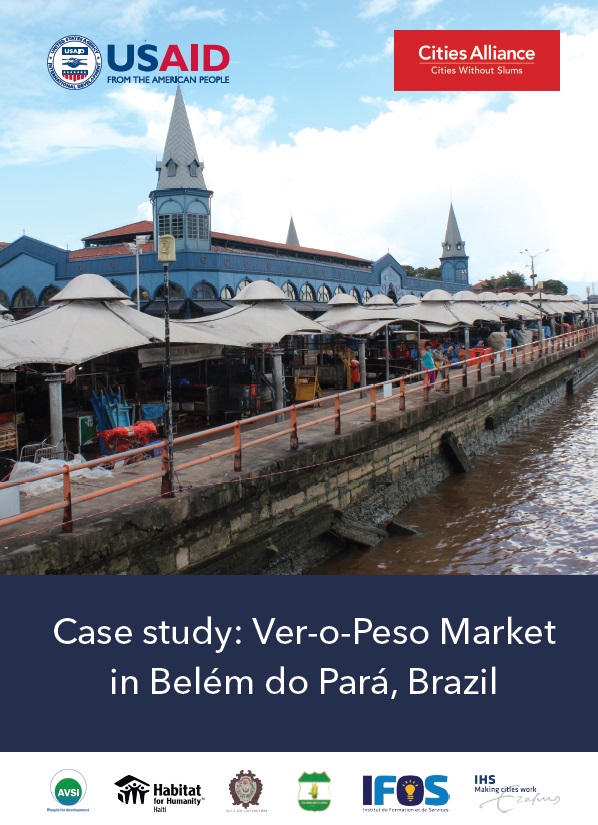- Who We Are
- How We Work
- Regional / Country Initiatives
- Legacy
- Core Themes
- Working Groups
- Portfolio & Results
- Newsroom
- Resources
Case study: Ver-o-Peso Market in Belém do Pará, Brazil

This publication aims to contribute toward promoting cross-learning based on practices from other cities from the Global South.
“Case study: Ver-o-Peso Market in Belém do Pará, Brazil” was produced under the LAVIL initiative, in Haiti.

The Ver-o-Peso complex was selected for this case study because of its historical and economic importance for the city of Belém and the broader Amazon region; its symbolism, social dynamism, cultural diversity, and goods and services sold; and its great influence in the construction of cultural and economic identity for thousands of individuals in Belém.
Markets symbolize living histories and remain crucial social hubs, acting as vital drivers in the community, in addition to fulfilling their primary commercial function. Faced with the accelerated process of urbanization and technological, social, and consumer changes, markets have the challenge of adapting to modernity to survive.
Ver-o-Peso Market, in the city of Belém, is one of the best-known public markets in Brazil and is considered the largest open-air fair in Latin America. Over almost four centuries, the market complex has been renewing itself, changing little by little and growing alongside Belém, while retaining its traditions and cultural aspects.
Many factors may have contributed to the resilience of the Ver-o-Peso complex throughout Belém’s urban development process. Among these are the significance of the complex’s culture and tradition; the collaborative efforts of traders from different sectors forming associations to advocate for their rights with the municipal government of Belém, referred to as “Belém City Hall” or simply “city hall”; and above all, the fact that city hall has created a mechanism for representatives of these associations to participate in the management of the complex.
This document briefly explores the history of Ver-o-Peso, its cultural and economic context, and its operation and management by the city of Belém, along with the active participation of market traders’ associations. The case study also describes the process of dialogue and meetings between these associations and city hall, through which the associations can present demands for improving services and maintenance.
Key lessons learned
The Ver-o-Peso complex is a well-managed, multi-functional public market located in the city centre that maintains local, cultural, and social-economic functions and also attracts tourists.
This is a market that engages not only the traders but also other actors in its administration, maintenance, and supply chains. This approach helps to make the market resilient and better able to face the challenges from the city’s development and the pressures from local politics.
Both the listing of the historic market as part of national and municipal heritage and the existence of a national or local regulatory system guaranteeing the participation of market traders’ associations and other local social organizations in the market management process contribute to the preservation of local traditions, culture, and customs and facilitate the adaption of the market to the urbanization and modernization processes of the city.
It is hoped that this case study of the Ver-o-Peso Market complex can offer a learning experience for mayors and other stakeholders about the participatory processes involved in the administration of a historic market, its operation, and the conservation, improvement and/or beautification interventions that have been implemented over time.

